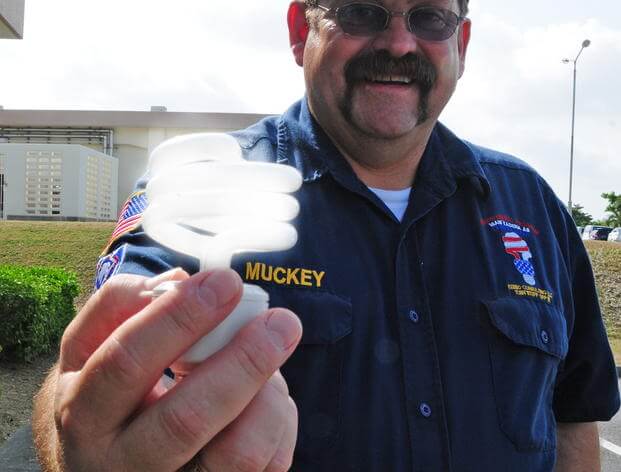If you're a Guard or Reserve spouse or an active duty family living away from your base, you know that getting help with any service related problem, like a lost ID Card or a Tricare fiasco, can be a nightmare. Not knowing another soul whose other half is also deployed can just make matters worse. But it looks like there is a growing light at the end of the tunnel -- a very, very small light, but a light nonetheless.
It was an early morning when Army Reserve Sgt. Jon Chevalley came back from a seven day mission through a dangerous part of Iraq outside of Baghdad. Exhaustion, sleep and calling his wife were on the front of his mind as he made his way back to his bunk.
But those things would have to wait. The contents of the envelope he found waiting on his bunk shook his world to the core. They were divorce papers, and he never saw them coming.
“I remember my heart sunk, like ‘holy crap what’s going on?’ I couldn’t fathom it,” he said. “I grew up in a Christian family and ... marriage is for life.”
Where his marriage was concerned, Chavelley thought he had done everything right. Before his 2007 wedding he and his wife attended four premarital counseling sessions. They had been married less than a year before he deployed. Sure, their relationship was not perfect, he said, but whose is?
When his wife asked for a divorce, Chevalley said he tried to save the marriage. He suggested they seek counseling when he got home and offered to improve his communication from downrange.
But his wife, he said, was not interested. She just wanted out, and he couldn’t blame her.
Chevalley’s story is not unusual. He said his ex-wife, who he prefers to keep anonymous to protect her privacy, wanted the divorce because she couldn’t handle the stress of deployment caused by separation, loneliness and lack of communication. Because he was a reservist they did not live near any military bases. She did not have many military friends.
“I guess [having me] away and being by herself was bad,” he said. “She didn’t want that lifestyle and she wanted to be on her own.”
There is no telling whether or not connecting Chevalley’s wife with other spouses would’ve saved their marriage. But the likelihood that it would’ve done some good is high. According to a study out of the University of North Carolina, spouses who surround themselves with support have overall better mental health during deployments and long separations.
Because Chevalley was a reservist his family did not have access to the kinds of resources active duty members often have at their fingertips. After almost 10 years of war officials are still scrambling to place family support within communities. While services are readily available on post for those who go and look for them, the active duty’s Army Community Service is not very good about getting the information outside the gate.
But the Army Reserve could be headed in the right direction. Over the last two years they opened a series of three Army Strong Community Centers within existing Army Reserve facilities in Rochester, N.Y., Brevard, N.C. and Coraopolis, Pa. They spent about $560,000 last year on personnel and equipment for the centers. Each offers community resources, healthcare and benefits help and a connection to other families in similar circumstances. With at least two more centers in the works, officials see this as the future of family support.
“What we’re finding is that the need is there, [that’s] not surprising,” said Lt. Gen. Jack C. Stultz, Jr., Army Reserve commanding general at the 2010 AUSA Conference. “Because what we’re finding ... is that when the soldier deploys, the spouse takes the kids and goes back to home. ... They’re out there with us now and they need services.”
Stultz said that of the over 5,000 families and soldiers that have used the Rochester center since it opened almost two years ago, 30 percent are active duty.
“It’s not about the Army Reserve, it’s about taking all those services you want on your installation and let’s put them out there in the communities where we have soldiers dispersed and families dispersed around this nation. There’s a need and we’re going to work together ... to see how we can make this part of the Army’s plan," he said.
Obviously it will likely be several years, at least, before these centers are anything close to widespread. But it is some small comfort to know that officials have recognized the problem and are at long last doing something about it. Yes, the current three are in preexisting Reserve facilities. But there are plans to open them in freestanding locations, and not necessarily in areas you might think.
I rule this "progress."









